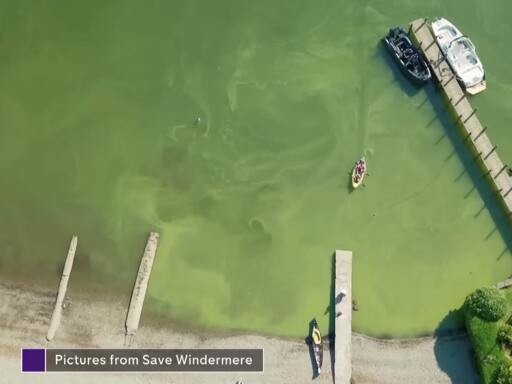River Action is taking Ofwat to the High Court for allowing water companies to charge bill-payers twice for infrastructure improvements that would reduce pollution.
BREAKING: We’re in court TODAY challenging @Ofwat
promised customers wouldn’t pay twice for infrastructure improvements, but its approach risks customers paying again for failures that should never have happened.
Building on the failures exposed by @MattStaniek of… pic.twitter.com/JZB9wnNLBg
— RiverActionUK (@RiverActionUK) November 4, 2025
In an attempt to fund an investment of more than £100bn to reduce sewage pollution, Ofwat is unlawfully allowing water firms to charge customers twice.
As the Canary has previously reported, the number of water companies releasing sewage into Britain’s rivers and oceans is at an all-time high. According to Surfers Against Sewage, there were 2,487 incidents in 2024. This is over twice the limit set by the Environment Agency (EA).
This is separate from the total number of sewage spills. This stood at 3.6 million hours of spillages into our lakes, rivers and seas in 2024.
And of course, the firms are still paying company shareholders, while working-class people suffer with extortionate bills.
According to The Guardian, lawyers for River Action say the bill increases would amount to an average of £123 per household, per year.
Effectively, customers will be paying again for improvements that their previous bills should have funded.
According to River Action:
At the heart of the case is Ofwat’s 2024 Price Review (PR24), which approved above-inflation bill increases – averaging £123 a year per household – and authorised “enhancement expenditure” for water companies to upgrade wastewater treatment works and pumping stations to meet their legal obligations. The case uses United Utilities and Lake Windermere as a case study, but we believe the claim has uncovered issues with Ofwat’s approach across England and Wales.
Customers footing the water bill
Of course, customers at the worst-performing companies are facing huge bill increases. For example, Thames Water is charging customers 35% more. They have raised average bills from £436 to £588 in 2024.
Similarly, Southern Water is charging customers 53% more, increasing bills from £420 to £642 on average.
Recently, Ofwat stopped more than £4m of potential bonuses for water bosses under new rules on performance-related executive pay.
Ofwat blocked the payments at Anglian Water, Southern Water, Thames Water, United Utilities Water, Wessex Water and Yorkshire Water. Most of the failures leading to the pay-stop involved pollution.
Ofwat said that a further £2.4 million of performance-related executive pay was not required to be blocked, but should not be funded by customers.
But customers are still footing the bill for firms’ failures, which is why River Action is now bringing legal action against the regulator.
Ofwat’s own policy states that customers should not pay twice for enhancement schemes.
River Action claims that:
Ofwat acted unlawfully when it implemented its policy because its approach has allowed costs to be passed to customers without ensuring the funds actually deliver promised improvements rather than merely correcting historic underinvestment. In effect, we argue that Ofwat’s approach has likely allowed for paying twice, with some households having to pay for infrastructure improvements to achieve environmental compliance, which should have been funded from historic bill payments.
The legal team is using Lake Windermere as an example to argue their case. The lake has become a “symbol of the crisis in England’s waterways”. This is despite it being a designated protected site. Monitoring data indicates that thousands of hours of sewage are discharged from nearby treatment works and pumping stations every year.
The team argues that if such massive failures can happen at one of the country’s most iconic lakes, they are likely happening across the whole country.
River Action said in a statement:
Our legal challenge is part of our broader campaign to reform how water regulation works in the UK. We argue that Ofwat, as currently structured, has become too close to the companies it regulates and too distant from the public interest it is meant to serve.
Feature image via Channel 4 News/ YouTube
By HG
From Canary via this RSS feed


